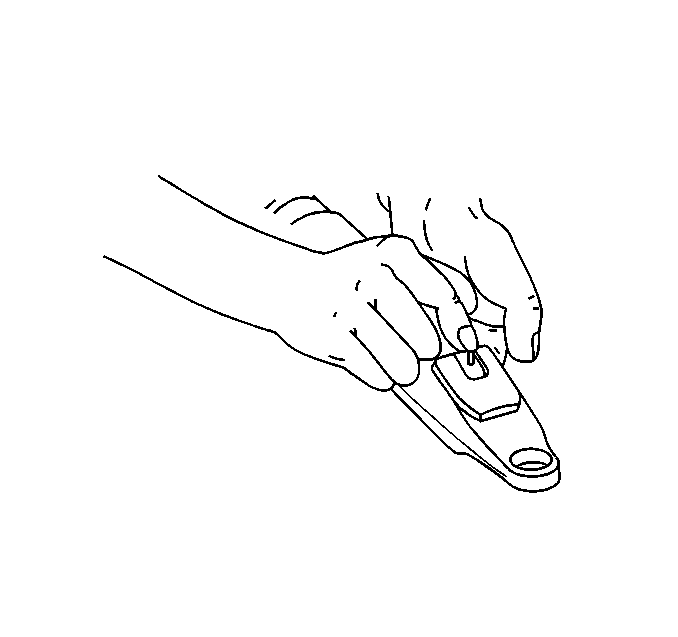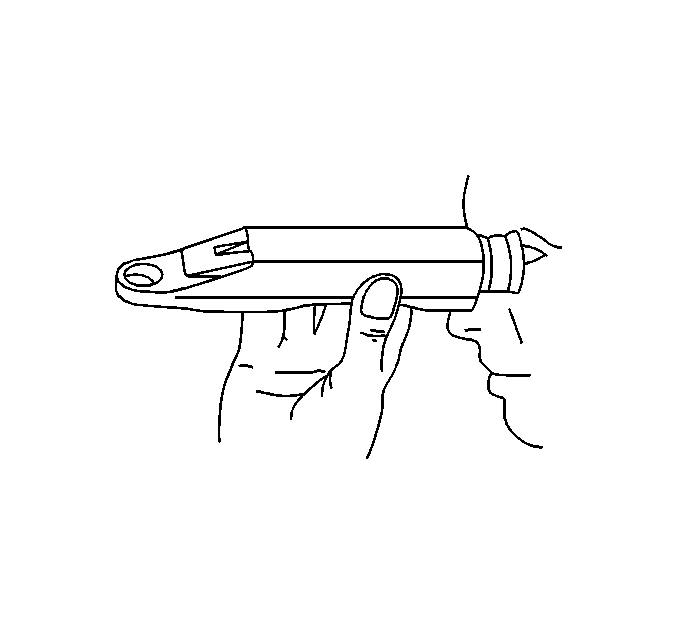Cleaning The Instruments
Tools Required
| • | J 23688 Coolant and Battery Fluid Tester (Fahrenheit Scale) |
| • | J 26568 Coolant and Battery Fluid Tester (Centigrade Scale) |
Some coolant manufacturers mix other types of glycol into their coolant formulations. Propylene glycol is the most common new ingredient.
A hydrometer does not always provide a correct measurement of freeze protection when anything other than ethylene glycol and water is being tested. The degree of inaccuracy varies depending on the proportion of other glycols present in the coolant.
All new GM vehicles are produced with coolant that can be accurately measured with a hydrometer; however, when the type and quality of coolant being measured is unknown, such as a customer vehicle that has accumulated mileage, the use of the refractometer is recommended.
Coolant testers J 23688 (Fahrenheit Scale) or J 26568 (Centigrade Scale) can be used to check the antifreeze protection of the coolant. Make sure the refractometer markings are correct. Unless J 23688 or J 26568 has a provision for temperature correction, test the temperature at which J 23688 or J 26568 is calibrated. If the coolant is warmer or cooler, the reading may be incorrect. Follow the manufacturer's direction on using J 23688 or J 26568 .
- To clean, swing back the plastic sample cover located at the slanted end of the J 23688 or J 26568 .
- Wipe clean both the prism and the bottom of the sample cover.
- Dry them with a tissue or a clean soft cloth.
- Close the sample cover.

Testing Procedure
- Release the clear plastic dropper, located on the side of the J 23688 or J 26568 should be used to draw the test sample.
- Ensure that the dropper is free of any previous sample before starting the testing procedure.
- Dip the end of the plastic dropper into the coolant without removing it from the tester. Be sure to insert the tube slightly below the fluid level.
- Press and release the bulb to draw a sample of coolant.
- Bend the plastic tube around the J 23688 or J 26568 so that the tip can be inserted in the sample cover opening.
- Eject a few drops of the coolant onto the measuring prism by pressing the bulb. Take a reading.
- The J 23688 and the J 26568 are equipped with an eyeguard that can be used in two positions. when wearing eyeglasses, the eyeguard should be folded back; when no eyewear is worn the eyeguard should be extended. Proper positioning of the eyeguard will help eliminate stray light and improve image quality.
- To take a reading, point the J 23688 or the J 26568 toward any light source and look into the eyepiece.
- The coolant freeze point reading is taken where the dark and light portions of the scale meet. Take the coolant reading on the right-hand scale.
- To obtain the best contrast between the light and dark portions of the scale, tilt the J 23688 or the J 26568 toward a light source. if the edge between the light and dark shadow is not sharp, the measuring prism was not sufficiently clean and dry or there was not enough fluid on the measuring prism.


Important: The temperature scale is reversed from a standard thermometer scale. Readings below 0 degrees are on the upper half of the scale. The scale is not visible until a sample is placed on the prism. If the concentration of the solution tested is greater than the limits of the scale, the shadow will not be visible.


Calibrating Testers
The J 23688 and the J 26568 are factory calibrated and sealed. The testers should not require adjustment. If adjustment is required, perform the following adjustment procedure:
- Make sure the temperature of the J 23688 and the J 26568 is between 21 and 29 degrees Centigrade (70 and 85 degrees Fahrenheit).
- Using distilled water, take a reading.
- If the reading departs from a 0 degrees Centigrade (32 degrees Fahrenheit) reading on the scale perform the following:
| 3.1. | Remove the sealant covering the screw. |
| 3.2. | Turn the screw in the direction necessary to adjust the reading to the 0 degrees Centigrade (32 degrees Fahrenheit) line. |
| 3.3. | Reseal the screw using silicone sealant. |
